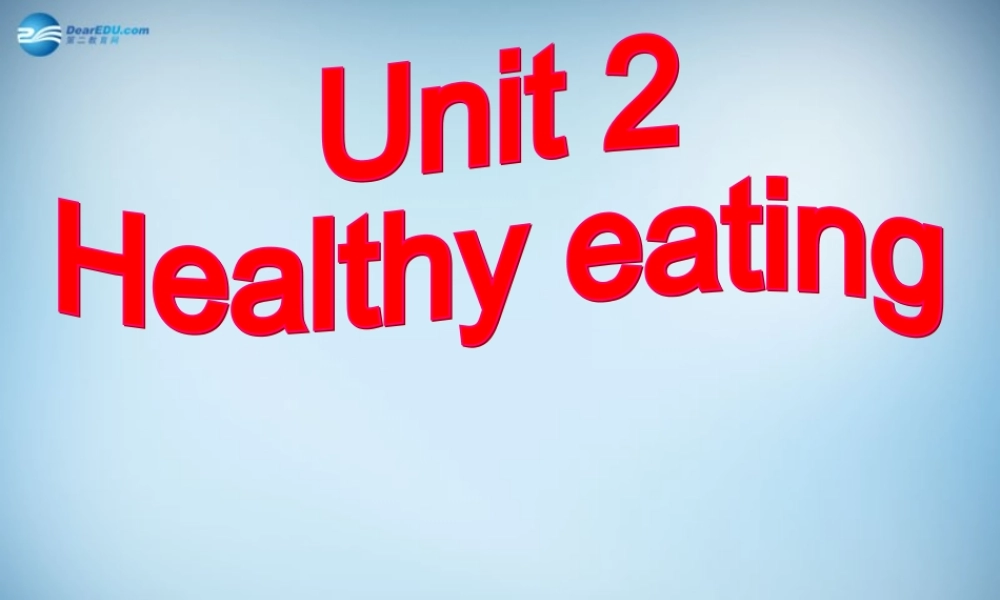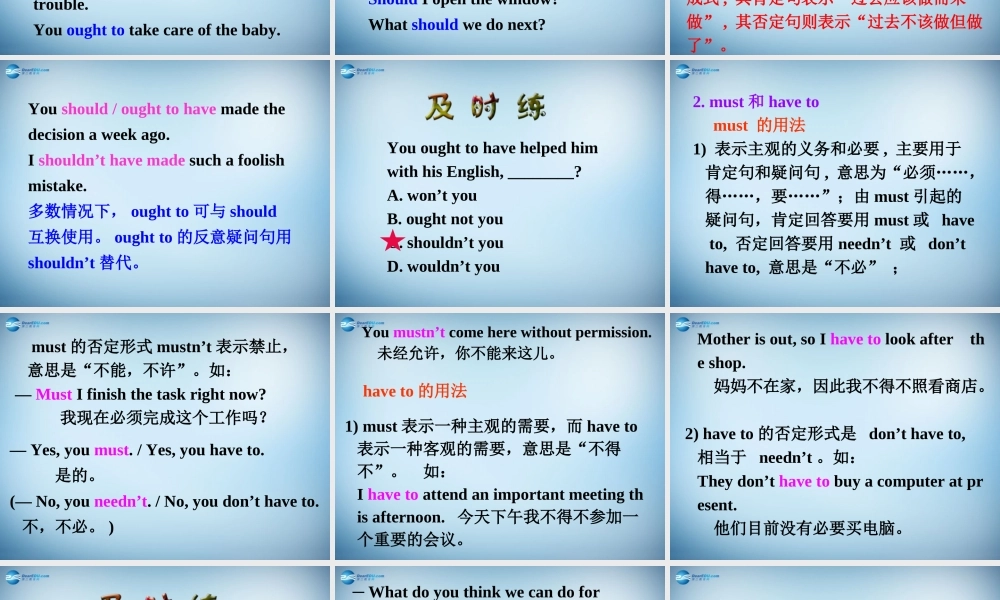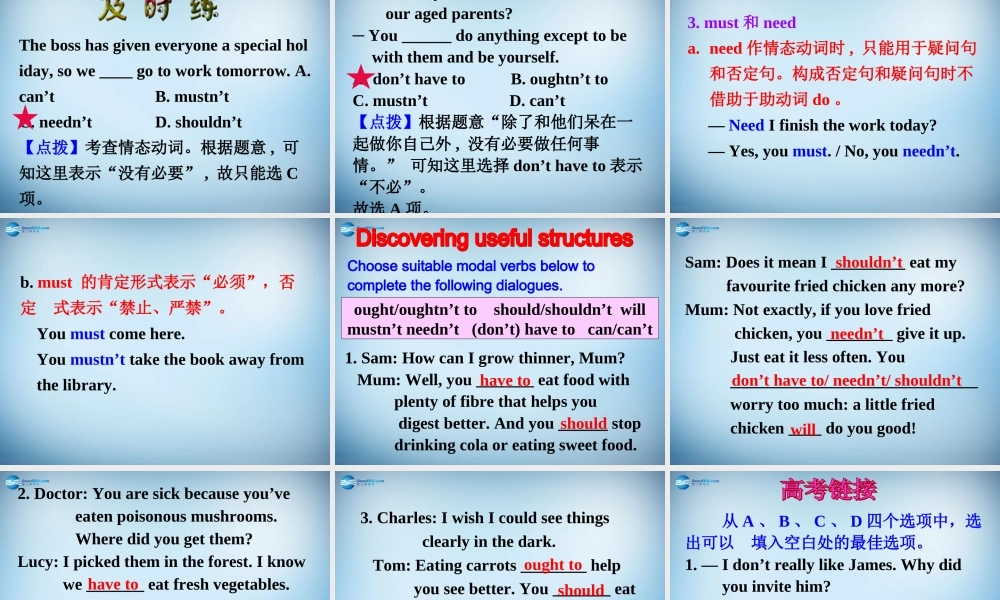Find the sentences containing modal verbs in the reading passage. Then by lunchtime they would all be sold. What could have happened? Nothing could be better. Something terrible must have happened if …He could not believe his eyes.Perhaps he should go to the library and find out.He had better do some research!Even though her customers might get thin after eating Yong Hui’s food, …They would become tired very quickly.a. should, ought to 都可表示“应该”。 ought to 用于表示按道理应当,常指客观的义务或责任,大多数情况下可用 should 代替,但比 should 语气重。I should help her because she is in trouble.You ought to take care of the baby.b. 表示劝告、建议或命令时, should 和 ought to 可通用,但在疑问句中常用 should 。 ought to 的否定式为 oughtn’t to 或 ought not to 。You should / ought to go to class right away.Should I open the window?What should we do next?c. should, ought to 都可表示推测。He ought to / should be home by now. This is where the oil ought to / should be. should 和 ought to 后面跟动词不定式的完成式 , 其肯定句表示“过去应该做而未做” , 其否定句则表示“过去不该做但做了”。You should / ought to have made the decision a week ago.I shouldn’t have made such a foolish mistake. 多数情况下, ought to 可与 should互换使用。 ought to 的反意疑问句用shouldn’t 替代。You ought to have helped him with his English, ________?A. won’t you B. ought not youC. shouldn’t youD. wouldn’t you2. must 和 have to must 的用法 1) 表示主观的义务和必要 , 主要用于肯定句和疑问句 , 意思为“必须……,得……,要……”;由 must 引起的疑问句,肯定回答要用 must 或 have to, 否定回答要用 needn’t 或 don’t have to, 意思是“不必” ; must 的否定形式 mustn’t 表示禁止,意思是“不能,不许”。如: — Must I finish the task right now? ...




